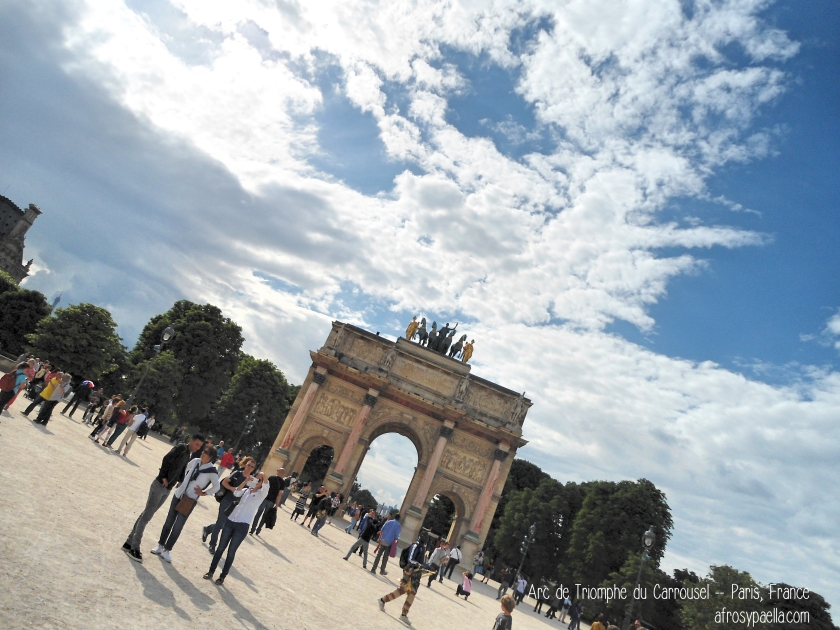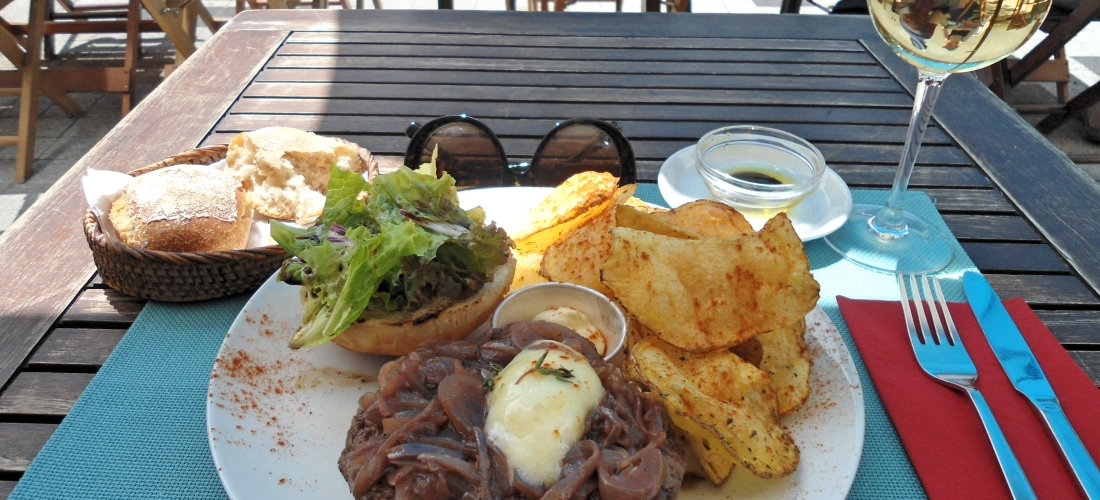Growing up in the predominantly black suburb of Stone Mountain, Georgia perhaps shrouded me from ever feeling like I was different. I grew up submerged in sea of other people who looked like me, spoke like me, listened to the same music as me. There was no clear separation. It wasn’t until I went away to school at Mercer University that I grasped what it meant to be within the minority.
And being in the glaring minority was only amplified, to gross, sweeping levels when I moved to Madrid in the fall of 2013. I had never experienced the phenomena of being the “only one” because I was always one of many, many, many others who were just like me. I had never identified with the isolation, confusion and frustration of constantly having to navigate my (literal) physical space within others who were not like me and clearly did not understand me, nor where they committed to, in the very least, of being tolerant of those like me. I never had to stuff down the constant anguish of doling out explanations of who I was for the sake of sanity or knowing, intimately, how a little bit of you dies and breaks off each time you have to negotiate within yourself to do it.
Maybe if I was more deluded, more in denial, more oblivious, I could pretend one of my greatest passions behind writing (ahem) and cooking — travel — bears some affect when my race comes into the picture. And no, I’m not just pulling the “race card,” holding a chip on my shoulder, being overly sensitive or reading too into things. This is something I know firsthand from the several experiences I’ve had over the past year, when me, my Black self, was jetting around the world in search of adventure, and I realized, a sober realization, that doing so was a revolutionary act in itself.
I can reflect on London, strolling the cobblestone streets. My feet, exposed and uncovered frozen solid, my teeth chattering, the layers of clothing I attempted to wear still rendering me frigid. Eating a kabob loaded with pickled red onions, tomatoes, cucumbers, succulent lamb juicy and bursting with flavor and a cooling yogurt sauce, dripping onto my the front of shirt, laughing with my cousin and his friends. Staring bright-eyed, in childlike wonder, through the wrought iron gates, speckled with gold leaves which looked as delicate as foil, at Buckingham Palace at the change of the guards, the guards clad in morose, somber grey posts instead of the red pea coats I thought I’d see.
But I only, mostly remember, slapping a vibrant head wrap on my head the wee hours of my departure before heading to London Gatwick airport. I remember, vividly, being asked if my head wrap was donned for religious reasons and when I shrugged in confusion, leading the border control agent to believe I meant no, urging me to remove my headwrap, exposing my nappy natural hair, my TWA, matted to my head. I remember her roughly fingering my hair, attempting to feel my roots but only snagging my kinky coils, and causing me to yelp in pain. And being asked, with vitriol and aggression leaking in her voice, only seconds later, to remove my shoes, although I was originally told I could keep them on.
I can reflect on Brussels, stumbling into Grand Place, where one of the most ornate, beautiful and awe struck cathedrals I’ve seen with my naked eyes — outside of The Duomo in Milan and the Catedral de Sevilla in Sevilla — or pushing my way through the Godiva where the smell of freshly churned chocolate tickled my nostrils and aroused my taste buds. I remember the nine hours I spent there, not knowing a word of French. Eyes being cut at me, like I was a suspicion, a threat, someone to be feared. People bursting my bubble of boundaries, demanding I answer them in French, because of course, I’m Black. My skin is brown. I have to be African which means I most likely speak French. But I didn’t. Not then, not now.
But I only most remember, going through passport control at the Brussels airport and the officer looking at me stunned, blown away and utterly bewildered. After looking at me and down at my passport and up at me and down at my passport and up at me and down at my passport, he cocked his head to side and peered at me and asked, “What happened?”
I squinted back at him and stuttered, not sure what I was supposed to say. And okay, maybe I did look different. In my passport photo, I had honey blonde hair stringy and broken off and in person, I had a dark haired (my natural hair color) nappy coils which were short and low cut. But did I really look that different? My face looked the same. These were the microaggressions. The demands to explain.
I could also go into grave detail about how dozens of times I’ve been “randomly selected” to undergo extra screening before jetting off to a new locale. Asked more questions then necessary. My belongings being rustled through for an indeterminate amount of time, threatening me to miss my flight. Or being stared at like I have three heads when out and about in a foreign city. Or feeling like I was abnormal or strange because of the color of my skin. The whispering, the pointing, the slower than slow service because of my brown face, because of course, I’m not deserving of the customer service that other, White customers, receive.
But I think you get the point. I think you can see that I’m not exaggerating. That these are very real micro aggressions which can wear on someone who is so determined to see as much as the world as possible but when other people are determined to remind you of the global appeal of anti-Blackness. How Black faces being unwanted isn’t just an American construct and how it is a global one, in every truest sense of concept, one bolstered by colonialism and White supremacy coursing through the veins of every living soul.
And yes, many will argue with my passport, my blue passport emblazoned with a gold eagle on the front presents me with a horde of privilege. But let’s also be real — what difference does my blue passport really make, that when whomever flips it open to the photo page, and they see my un-American name? When they look at it, and instantly, know it’s not American? When they know I’m foreign, in some sense of the word, and decide, right then and there, to discriminate?
Many others will tell me that yes, as a Black woman, a tall Black woman, I’m warranted the stares and the ogling I get whenever I go somewhere where I’m not in the majority. People will tell me to expect it. That it’s just because I’m tall, as a I stand, statuesque at almost six feet. And in the same breath, they’ll also tell me to extend an olive branch, to be more understanding of their confusion and the subsequent ignorance which arises in their questions and their ignorance. They’ll tell me explain, to be a good example, to be a representative on behalf of countless others.
But dammit. That isn’t me. The me I am, the me I have grown to be, isn’t interested in that. The me I am isn’t interested in extending nary of even a damn twig branch. The me I am isn’t here to be your bridge to cultural understanding. The me I am isn’t here to be representative of what it means to be Black, to be Black American, to be African. The me I am doesn’t want (or ask) to be affronted with the different treatment and surely doesn’t want to be exhausted to have to bother to explain. To me I am understands that Black American and Africans aren’t a monolithic group. That there are differences and wavelengths that vary along gender, religion, sexual orientation and socioeconomic levels. And to be asked to be a representative is insulting and denounces the vasty amount of diversity that exists within us, among us.
I understand my existence, for most, is audacious. That daring to be a Black American and African woman who is unapologetically proud of who she is…unfathomable. But who I am is who I am. Who I am is proud. Who I am is authentic. And who I am won’t stop daring to see the world, one city, one town, one country, one continent at at time. And the who I am doesn’t ever want to, have to, desire to, have to explain.







